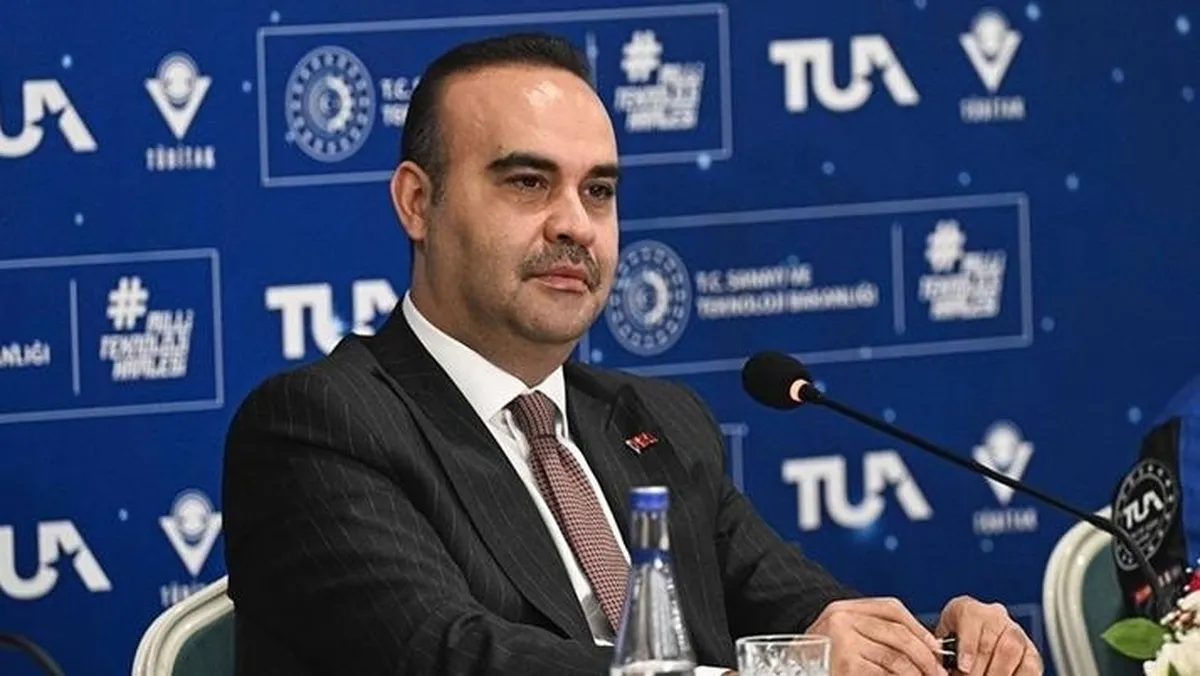Türkiye Aims to Boost Space Research Capacity

“In the days ahead, we will further advance our country's capacity to conduct scientific research in the field of space with new international collaborations in crewed space missions,” Industry and Technology Minister Mehmet Fatih Kacir told a news conference held with Türkiye's first two space travellers, Tuva Cihangir Atasever and Alper Gezeravci.
Kacir explained how the Turkish government is determined to take maximum advantage of the opportunities offered by space for a Türkiye that is ambitious in science and technology and offers competitive products and services in high-tech fields.
Kacir stressed that Türkiye’s second space traveler Atasever, who last week successfully completed a suborbital flight, added another proud moment to the Turkish people.
As a research astronaut, Atasever was responsible for seven scientific experiments under microgravity conditions.
“He proudly carried both the Turkish and Azerbaijani flags on his chest in space with the slogan 'One Nation, Two States,' and his name is written in golden letters in history,” Kacir said.
Atasever’s flight lasted about 70 minutes, using its hybrid propulsion system to rise to an altitude of some 90 kilometers (55 miles).
During the free-fall phase of the flight, the crew experienced microgravity for nearly three minutes, Kacir noted.
With equipment and experimental sets attached to his body, Atasever did seven experiments ranging from biological molecules to gene analysis, from metabolic changes to suppressor cells, from insulin pens to radiation analysis, he explained.
“Three of these were intended to be a continuation of experiments conducted by our first astronaut, Gezeravci, on the International Space Station, and our suborbital research flight allowed the scope of the experiments to be expanded,” Kacir said.
Atasever said that three of the seven experiments done during his mission were integrated into his own flight suit and four were human physiology experiments.
He explained that by analyzing some biological samples collected from him just before and after the flight, researchers will have the chance to do research on special topics such as genetics, metabolic changes, differentiation in cancer cells, and extracellular vesicles.
4155/v





















